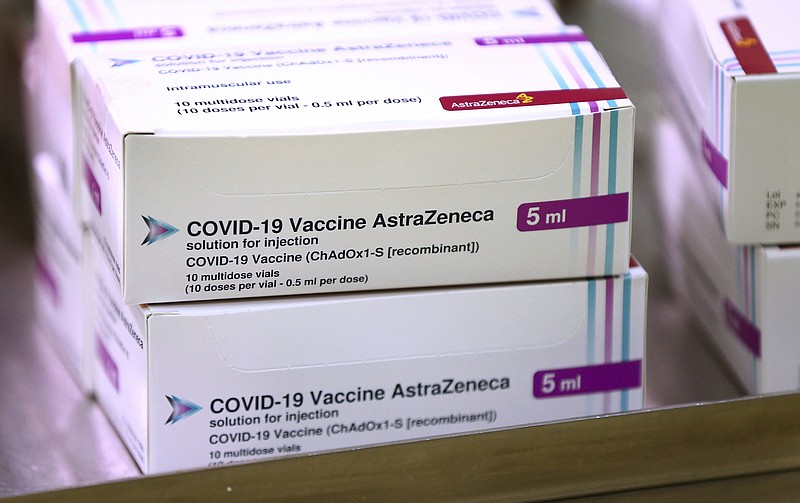An announcement from the federal government that adults age 65 and up would become newly eligible for COVID-19 vaccines sent shockwaves through an already-taxed public health infrastructure as it struggles to keep up with a raging pandemic.
Experts say this type of messaging from the federal government is what has led, at least in part, to unrealistic expectations around the vaccine rollout and is fueling frustrations among Americans who are desperate to get their first dose.
"There's been whiplash at the state level because of this," said Dr. Rebecca Weintraub, an assistant professor of global health and social medicine at Harvard Medical School. "This created another level of uncertainty, and you can imagine, raised expectations across a much larger segment of the adult population in every state in the nation."
On Tuesday, the U.S. Department of Health and Human Services asked all states to begin vaccinating people age 65 and older. HHS Secretary Alex Azar's new instructions this week mean nearly half of the country's adult population is now at the front of the vaccine line.
"States learned of this the same time the public did. So now we have 152 million Americans now eligible for the vaccine, but you do not have that supply available," Weintraub said.
In Tennessee, state and county health departments said, due to the shortage of doses, they would not lower the eligible age bracket from 75 and older. On Friday, the Washington Post reported the federal stockpile of doses was depleted when the government issued the directive.
States across the country are already struggling to meet demand for the vaccine as the federal government has failed to meet its own goals for distribution. At the start of the month, elderly residents in Hamilton County voiced frustrations about the long lines of cars. In Northwest Georgia, residents had to make repeated calls over several hours to book vaccine appointments.
The Department of Health and Human Services made several other announcements last week, throwing more wrenches in the state vaccine distribution plans.
Up until this point, Operation Warp Speed disbursed the supply based on a percentage of a state's adult population. But Azar said now states will receive additional vaccine allocations based on how efficiently they're vaccinating their populations.
Weintraub said the publicly available data on the rate of states' vaccination efforts can be misleading based on how vaccines have been allocated thus far. Since states with smaller populations have been getting smaller allotments, it's easier to blow through their supplies and appear more efficient.
"As our general population is reading, and folks are looking at dashboards across different states, they're wondering, 'Wait a minute, why is it this state is able to deploy a higher percentage of their vaccine?'" Weintraub said. "That only tells a part of the story."
The change also could lead highly vulnerable states, such as Georgia, that have not vaccinated much of their populations to fall even further behind.
Glen Nowak, director of the Center for Health and Risk Communication at the University of Georgia, said he is optimistic the supply chain and rollout will improve as health departments scale up operations and more vaccine becomes available.
The failures early on could be somewhat expected, he said, though many Americans had high expectations for how the first months of the rollout would go. Developing the successful childhood vaccination program took decades, he said.
"There was this notion that all we had to do was to get to vaccines that were made available and it would go really well. That was overly simplistic," Nowak said. "We had to understand it was going to take awhile, months, to be able get enough doses of vaccine. It was probably going to take months for much of the country, for states, for local counties and for health care facilities to figure out how to scale up so they could provide lots of vaccines."
Nowak said many health departments are just now in the scaling-up phase. State distribution plans, regardless of supply, are broad and have few operational specifics, he said. Local health departments, already taxed with testing and contact tracing, are now faced with developing distribution models.
"It takes a lot of work to get down to develop a really detailed plan," Nowak said. "And it requires a lot of resources. Most health departments, they don't have a lot of staff and most of the staff they have are nurses or medical people. They're not communications people. They're not logistics people."
Becky Barnes, Hamilton County Health Department administrator, said at a news conference last week that the department is in the process of "completely rebuilding our delivery system" for COVID-19 vaccine allocation.
"What we build may have more problems, but I can pledge to you that we will keep rebuilding and keep fixing until we get every problem fixed," Barnes said.
Weintraub said Tennessee's vaccination plan is one of the best in the country, but implementing that plan will remain difficult as long as information is scarce and constantly changing.
"The national vaccine effort has become fragmented and inconsistent, and then the states and counties are in a sense scuttling to get their operations in order," she said. "Number one, they need more resources from the federal government. Number two, they need clear, transparent predictions of the supply."
Contact Elizabeth Fite at efite@timesfreepress.com or follow her on Twitter @ecfite.
Contact Wyatt Massey at wmassey@timesfreepress.com or 423-757-6249. Follow him on Twitter @news4mass.
